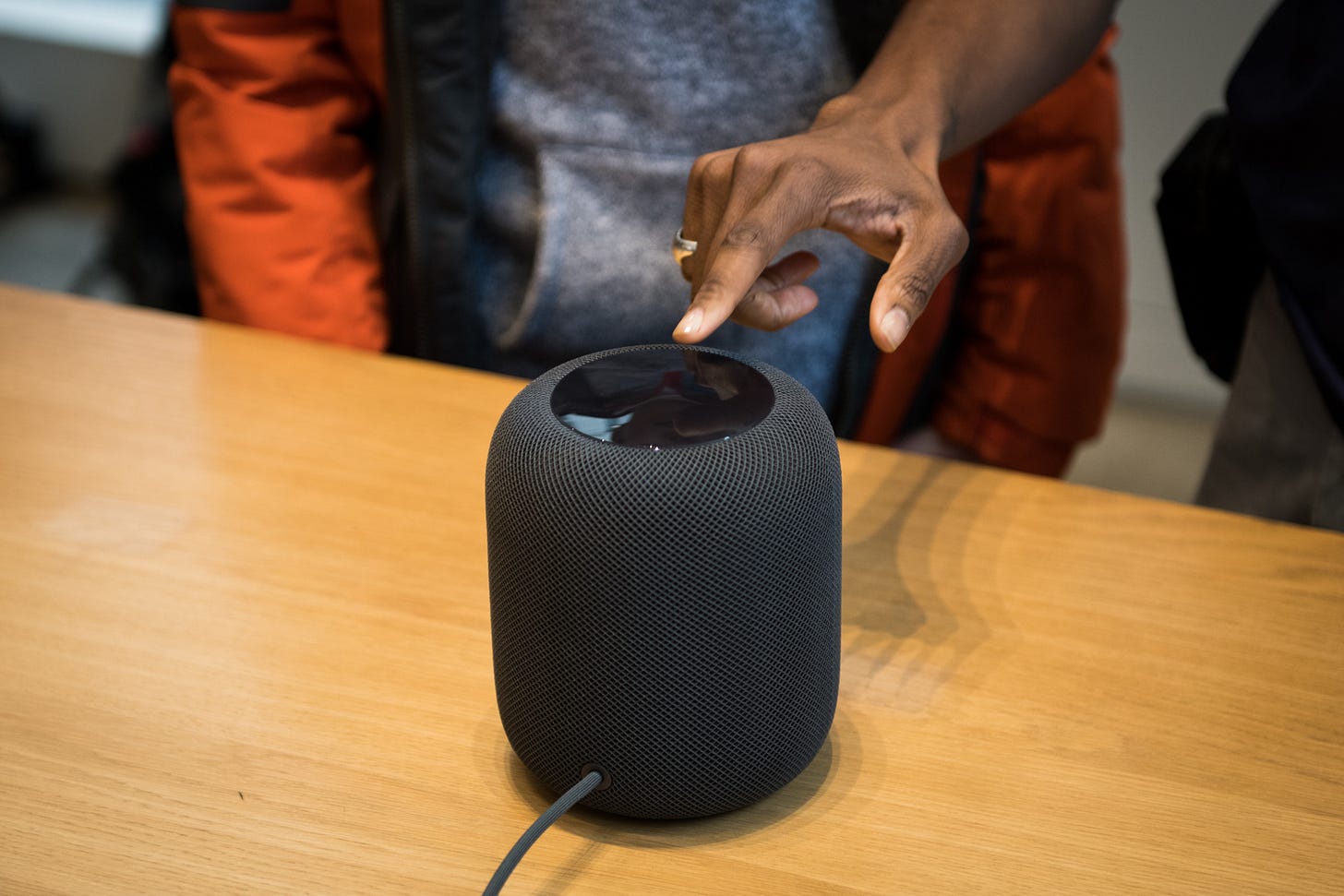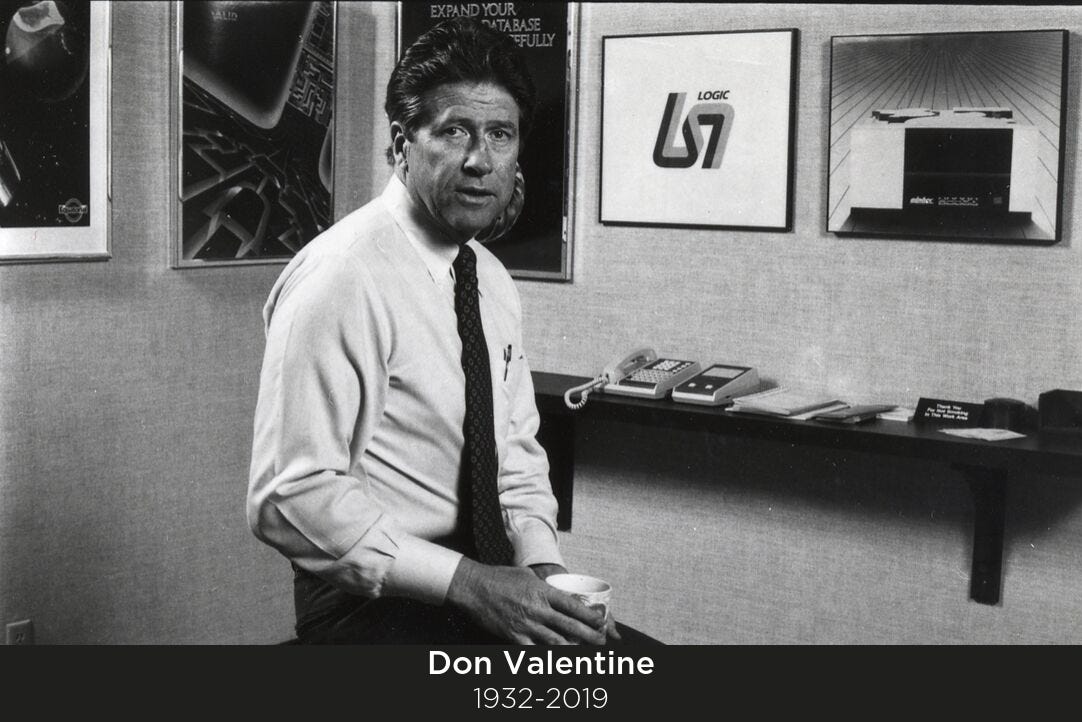Max, Indeed
HBO Max Content, Netflix Max Speed, HomePod Min, GIF Time, Don Valentine

HBO Max: Coming May 2020 for $14.99 a Month
Julia Alexander:
While HBO Max enters an increasingly crowded market, Stephenson said the HBO name brand already distinguishes the service from its competitors. Stephenson added that at the tier of the market where the company “intends to play, it is not that crowded.”
Followed immediately by:
HBO Max is poised to launch with an impressive number of titles for customers. Unlike HBO Now, there will also be a substantial focus on children’s programming and less prestigious but still incredibly popular series. Friends and The Big Bang Theory will both stream exclusively on HBO Max, as will new episodes of Sesame Street (moving from HBO’s traditional broadcast channel), although those episodes will eventually make their way to PBS. The entire Studio Ghibli library will live exclusively on HBO Max, too. Not to mention, the streaming service will play home to show reboots like Gossip Girl, which originally aired on the CW — a network co-owned by WarnerMedia. That doesn’t account for older WarnerMedia series that the company has streaming rights to and will add for customers.
Stephenson’s comment suggest that AT&T views HBO Max as entering some theoretical non-crowded premium tier. This is immediately followed by the notion that HBO Max intends to differentiate itself via shows like Friends and The Big Bang Theory. And Sesame Street. And Gossip Girl. Etc.
Look, say what you will about each of these shows — taste is subjective and it was certainly a huge get for AT&T to land each of them — but I just don’t think you can argue that they are “premium”. I don’t care how much they cost now. They aired on network television. They will forever be associated with mass appeal. That’s what made the shows what they are. That’s not a bad thing. It just is what it is. What it is not, is premium. What it is not, is what has traditionally been viewed as HBO.
This is fundamentally what confuses me about AT&T’s play here with HBO. They’re taking a premium brand — the most premium brand in television, in fact — and trying to shove mass-market content into it. I don’t think it’s a stretch to be extremely skeptical that this will work.
Netflix Experiment Lets You Watch Movies at 1.5x Speed
Lucas Shaw:
Other forms of media have already embraced faster playback speed. YouTube lets viewers watch clips at up to 2 times the normal rate, as does Apple’s podcast app. The feature lets podcast listeners gobble up lengthy series in half the time -- with the side effect of chipmunk-sounding voices. Likewise, a YouTube user can watch a 10-minute cooking video in five or six minutes.
But the approach is more controversial when it comes to videos that people consider art. Netflix has developed a reputation for challenging the norms of entertainment, often in ways that offend more tradition-bound viewers. The company has offended cinephiles by pushing for movies to be released at home at the same time they appear in theaters and allowing viewers to skip opening credits.
Oh boy is this divisive. And while I’m obviously a pretty big fan of the concept in general, I agree with the Hollywood contingent for film. I think it would be ridiculous to watch a movie at Chipmunk-speed. The performances would be ruined. And if part of art is presentation, well…
But I also think there’s some nuance here. A documentary? Probably art. But maybe not always. I think it depends. Or other content with a more more educational tilt? Sure. It’s all about ingesting information quicker in our age of content saturation.

85,000 vs 450
Mark Gurman on Apple re-thinking their HomePod (and home, in general) strategy:
Apple’s two smart-home devices compare with dozens of offerings like the Echo and Nest Hub Max from Amazon and Google, respectively. More importantly, Amazon and Google’s smart-home ecosystems are far larger than Apple’s. Apple lists about 450 compatible HomeKit devices on its website from third-party device makers. Amazon says that Alexa works with 85,000 smart-home products from 9,500 manufacturers and that consumers have linked tens of millions of home devices to Alexa. Google says its home platform works with more than 10,000 devices from 1,000 brands. Apple’s approval process for third-party accessories is known to be stricter than others.
Absolutely no surprise here. The strategy failed because it was the wrong strategy. Sure, Apple may have wanted to play by their old playbook. The game changed. Now they must adapt. But can they? The DNA required here would seem to be much different. And Apple already blew a massive opportunity in the space once…
How to Turn GIFs into a Apple Watch Faces
This is fun from Vjeran Pavic. I did it myself with a solid Keanu GIF.
(via @GrahamHancock)

Remembering Don Valentine
Sequoia Capital, the firm Valentine founded:
This first fund made seminal investments in Atari, the pioneering videogame company started by Nolan Bushnell, and in Apple Computer, a company started by a onetime Atari employee, Steve Jobs, and his high school friend, Steve Wozniak. Don served on the Boards of both Atari and Apple.
These early investments put what later became known as Sequoia Capital on the map. Don’s choice of name for our partnership was in keeping with the man. It conveyed the longevity and strength of the tallest of redwoods with the humility of someone who refrained from putting his own name on our business.
What a legacy. And such a great, deceivingly simple mantra to boot: “Who cares?”


